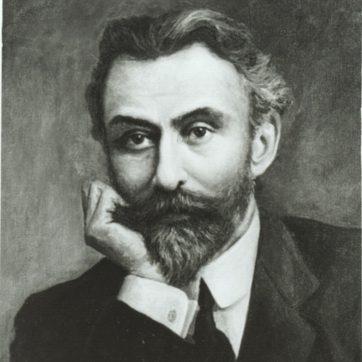“The only limit to your success is your own imagination.” “Don’t wait for opportunities to come to you, create your own opportunities.” “Success is not final, failure is not fatal: it is the courage to continue that counts.” “Be a person of integrity, and always do what is right, even when it is difficult – Ratanji Jamsetji Tata
Ratanji Jamsetji Tata (20 January 1871 – 5 September 1918) was a prominent Indian industrialist and philanthropist during the British Raj. As the son of the esteemed Jamsetji Tata, the founder of the Tata Group, Ratanji Tata played a pivotal role in expanding and diversifying the family’s business empire, leaving an indelible mark on India’s industrial landscape.
Early Life and Education
Ratanji Jamshedji Tata was born into the distinguished Tata family, which hailed from Navsari, Gujarat. His grandfather, Nusserwanji Tata, was among the first entrepreneurs from a Parsi Zoroastrian priestly background to break family tradition and enter business. Nusserwanji’s son, Jamsetji Tata, continued this legacy, building a formidable industrial empire that would later become the Tata Group. Gujarati was the family’s mother tongue, and they held a deep respect for education, discipline, and philanthropy.
Born in Mumbai, Maharashtra, Ratanji Tata was the younger son of Jamsetji Tata and Jeevanbai Tata. He was educated at Elphinstone College in Mumbai, where he developed a keen interest in commerce and industry. His academic pursuits laid the foundation for his future endeavors in business and philanthropy.
Contributions to Industry and Business
Ratanji Jamshedji Tata played a significant role in expanding and diversifying the Tata business empire. He was deeply involved in the establishment and growth of several key Tata enterprises, including Tata Steel, Tata Power, and Tata Chemicals. His strategic vision ensured that the Tata Group remained at the forefront of India’s industrial revolution.
Role in Tata Steel
One of Ratanji Tata’s most notable contributions was his involvement in Tata Steel, India’s first integrated steel plant. He worked alongside Sir Dorabji Tata, his cousin, in securing financial backing and technological expertise for the venture. Tata Steel not only laid the foundation for India’s self-sufficiency in steel production but also became a model for worker welfare and industrial development.
Beyond steel, Ratanji Tata was involved in the development of various industries, including textiles, power generation, and hospitality. His strategic vision and business acumen were key in diversifying the Tata Group’s portfolio, ensuring its resilience and growth in a competitive market.
Philanthropy and Social Contributions
Ratanji Jamshedji Tata believed in the philosophy of wealth being used for the greater good. His philanthropic efforts were aligned with the vision of the Tata family, which emphasized social responsibility. He supported educational institutions, healthcare facilities, and scientific research in India. His initiatives contributed to the establishment of premier institutions like the Tata Memorial Hospital and the Indian Institute of Science (IISc) in Bengaluru, a premier institution for advanced scientific and technological research.
A philanthropist at heart, Ratanji Tata was deeply committed to social welfare and education. He made significant contributions to the Indian National Congress, supporting the movement for India’s independence. In 1909, Mahatma Gandhi acknowledged Ratanji Tata’s generous donation of Rs. 25,000, stating, “That India has been roused is evident from the generous gift of Mr. Ratanji Jamshedji Tata.”
Ratanji Tata also implemented progressive labor policies in the Tata Group, including the introduction of a provident fund for workers, long before such measures became common in India.
Legal Battle with British Authorities
Ratanji Jamshedji Tata was also known for his legal battle against the British authorities in India. He challenged the unfair taxation policies imposed on Indian industrialists, arguing for equitable treatment of Indian businesses. His efforts were significant in asserting India’s economic rights during the colonial period.
Legacy
Sir Ratanji Jamsetji Tata’s vision and leadership were instrumental in shaping India’s industrial and philanthropic landscape. His unwavering commitment to social welfare, education, and economic development has left a lasting legacy, inspiring generations of entrepreneurs and philanthropists. His contributions continue to be celebrated, and his life serves as a testament to the impact of visionary leadership on national progress.
Even today, Ratanji Jamshedji Tata’s legacy continues to inspire entrepreneurs and business leaders in India and beyond. His commitment to industrial progress and social welfare remains a guiding principle for the Tata Group’s global operations.


